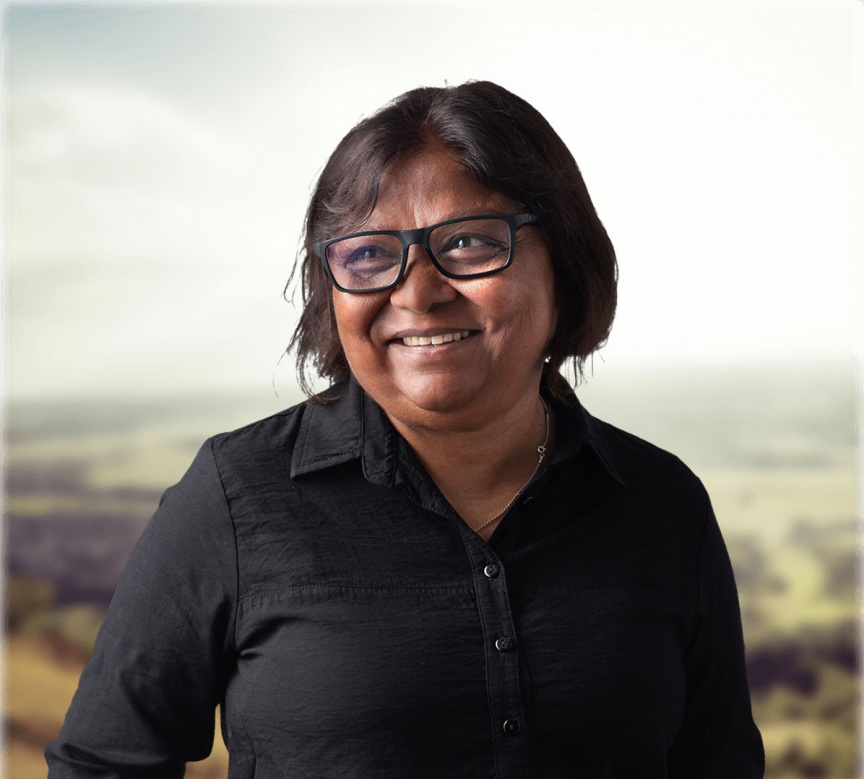
Shaahina Ali. (Photo/Ramon Magsaysay Award Foundation)
Shaahina Ali, the executive director of Parley Maldives, has won the 2025 Ramon Magsaysay Award, often called the ‘Nobel Prize of Asia’, for her unwavering commitment to protecting the marine ecosystem of the Maldives.
This year’s awardees were announced by the Ramon Magsaysay Award Foundation on Tuesday. Among them is Shaahina, a scuba diver, photojournalist, educator and head of Parley Maldives, under whose leadership the group launched Parley AIR, growing and engaging a network of island communities, schools, resorts, businesses, NGOs and government agencies in programs to reduce plastic waste, introduce recycling programs, boost eco-innovation, strengthen existing conservation efforts and inspire a new generation of ocean advocates.
From swimming, snorkeling and diving lessons to community education on the impacts of plastic pollution, Shaahina’s work has helped people of all backgrounds, especially young Maldivians, experience the ocean and understand the fast-changing world beneath the surface.
In electing Shaahina to receive the 2025 Ramon Magsaysay Award, the board of trustees recognizes her “unwavering commitment to protecting the marine ecosystem of the Maldives with passion, vision, and inclusivity, ensuring that her work will be carried on by another generation of Maldivians in search of effective local solutions to global problems.”
Sparking a movement to safeguard Maldives’ future
Like most Maldivians, Shaahina grew up with a deep love for the ocean.
“My memories of our beaches are of the finest white sand, full of natural shells, with many natural treasures for us to play with,” she recalled, in an interview to the Ramon Magsaysay Award Foundation.
“As a kid, I remember a fight we had for a plastic bottle find—it was so rare. Garbage or even fabric, tins, and plastic bags were not there. Plastic bags were treasured and reused, as they were not something available even in the shops.”
Today those treasures have become an environmental nightmare for the Maldives. The lack of proper waste management has led to tons of waste, particularly plastic, being disposed of haphazardly. As a diver, photojournalist, and diving instructor herself, Shaahina often came literally face to face with the tides of trash clouding up the once-pristine waters of Maldivian islands, leaving behind swaths of dead fish and dying corals.
In 2015, deciding to fight back, Shaahina linked up with the NGO, Parley for the Oceans, to frame a comprehensive program to save the country’s waters from pollution and to turn plastic waste into a useful source of livelihood for the people. Today, as executive director of Parley Maldives, she oversees the implementation of their signature strategy: Avoid, Intercept, and Redesign (AIR) plastics for a better environment.
Working with volunteers and with local businesses and organizations, Parley undertakes massive cleanups, educational programs, and recycling ventures that have not only caught much of the physical waste but just as crucially intervened where it matters—in the minds of Maldivians and tourists who now recognize and avoid the problems plastic poses.

With Shaahina, Parley has introduced plastic interception and collection sites in island communities and over seventy schools, leading over 700 collaborative cleanups along affected coastlines.
But Shaahina understands that much more has to be done both in and out of the water to ensure a cleaner and safer future for the Maldives.
“We can’t afford to address just one problem. We’ve got to take care of everything because everything is connected to the sea,” she said.
She has chosen to see the unique characteristics of Maldives as an opportunity for change rather than a hindrance:
“We are the perfect country to educate and showcase climate change and resilience as our country is made up of only 1 percent land; the other 99 percent is covered by sea.”
The Ramon Magsaysay Award Foundation recognizes her as a quiet but powerful figure who has sparked a marine movement rooted in community, science, and resolve, proving with every campaign, cleanup and policy shift that protecting nature is not just environmental, but existential.
“I go there to clean up with hope—hope that my grandchildren will see whales in the ocean in their lifetime as I did growing up,” said Shaahina, talking about the vision that drives her optimism and her passion for the seas.